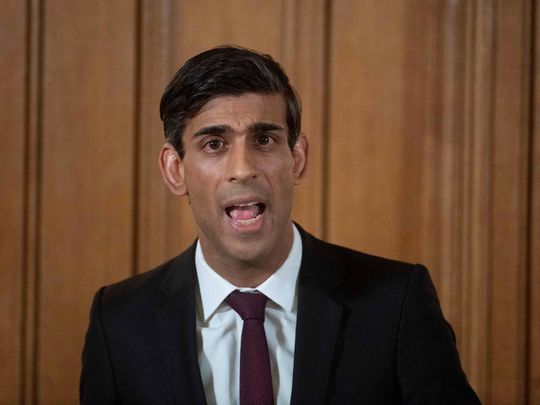
Gross domestic product declined 0.3% in the fourth quarter, above experts’ expectations of a 0.1% drop, according to Office for National Statistics data released Thursday. That followed an unrevised 0.1% decrease in the preceding three months, satisfying economists’ technical definition of a recession, or two consecutive quarters of contraction. While the economy nonetheless gained 0.1% for the year as a whole, it was the worst yearly expansion the UK had seen since 2009, excluding the first year of the epidemic. The UK economy had a quarter of growth in the first three months of the year.
The news that the UK slipped into a technical recession in 2023 will be a blow for the Prime Minister
UK bonds rose for the second day in a row, with 10-year rates falling below 4% for the first time in a week, after reaching a two-month peak near 4.2%. Money markets increased betting on the headroom for monetary policy easing this year, fully pricing three quarter-point cuts and a 10% likelihood of a fourth, with the first decrease predicted in August. The pound fell as much as 0.2% against the dollar to $1.2542, heading for its third day of losses. The recession, while well anticipated, is additional proof that the Bank of England’s campaign to reduce inflation has taken its toll. The statistics come at a particularly poor moment for Sunak, as voters go to the polls in two parliamentary constituencies in England—the latest test of the opposition Labour Party’s strength ahead of a general election expected later this year.
Sunak made growing the economy one of five key pledges after taking office in October 2022, along with cutting debt, halving inflation, reducing health services waiting lists and stopping boat migration across the English Channel. So far, he can only claim victory on his pledge to slow down price growth, which the bank has far more influence over than the government. “The news that the UK slipped into a technical recession in 2023 will be a blow for the prime minister on a day when he faces the prospect of losing two by-elections,” said Ruth Gregory, deputy chief UK economist at Capital Economics. “But this recession is as mild as they come and timely indicators suggest it is already nearing an end.”






